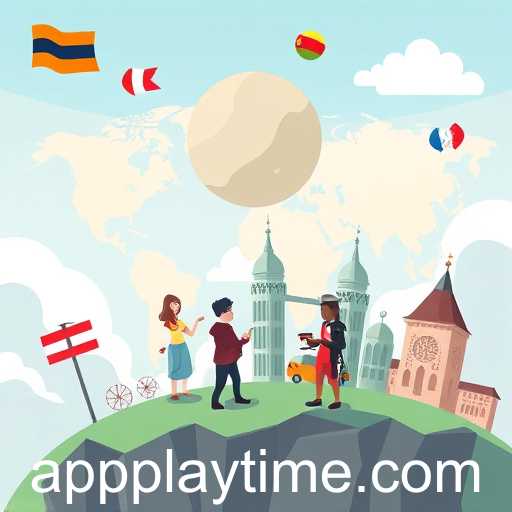In the digital age, languages are no longer barriers; they are bridges that connect different cultures and people around the globe. One innovative way that this connection is being fostered is through an engaging and educational genre of online games known as "Language Games." These games not only offer an enjoyable playtime experience but also promote linguistic skills and cultural awareness. A key focus of Language Games is to blend entertainment with education, making them an attractive option for language learners and polyglots alike.
Language Games encompass a variety of gameplay styles, each designed to improve different aspects of language learning. From vocabulary building exercises to complex grammar puzzles, these games challenge players to think critically and creatively. By integrating gamification principles such as points, levels, and rewards, these games motivate players to keep learning and practicing new languages in a fun and relaxed environment.
A popular subcategory of Language Games is "Babel Games," where players can choose their target language—be it Spanish, French, Japanese, or even lesser-spoken languages like Swahili or Lithuanian—and embark on adventures that require them to use the target language actively. This type of immersive playtime helps players develop conversational skills faster by placing them in scenarios that mimic real-life conversations. These games often incorporate voice recognition technology, allowing players to practice pronunciation and receive immediate feedback, which is crucial for mastering any language.
Another innovative feature found in Language Games is their ability to connect players from different parts of the world. Multiplayer options create opportunities for cultural exchange and real-time language practice. Players can team up to solve puzzles, participate in competitions, or even hold debates in their target language. Such interactive experiences not only enhance language skills but also foster friendships across geographies, bringing people closer and breaking down cultural barriers.
Language Games are not just for individual self-improvement; they are also valuable educational tools in formal learning settings. Teachers can incorporate these games into their curriculum to supplement traditional teaching methods. By doing so, they cater to different learning styles and keep students engaged. These games' flexibility allows them to be integrated into classroom settings seamlessly, making learning more dynamic and effective.
In conclusion, the emergence of Language Games as a popular category on educational websites signifies a shift in how we approach language learning. By combining the elements of fun and education, these games provide a powerful platform that motivates and engages players, paving the way for a more interconnected and multilingual world.








